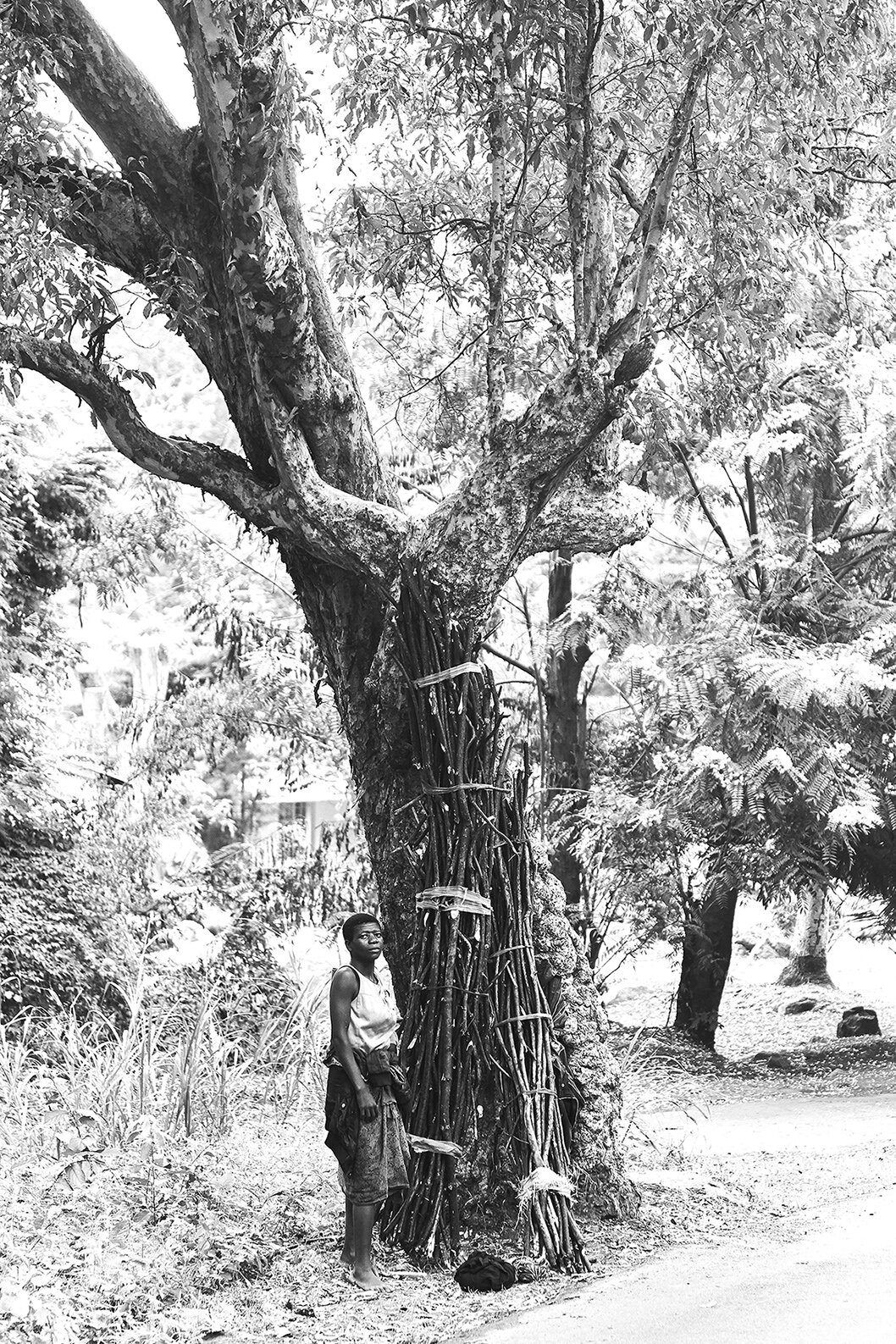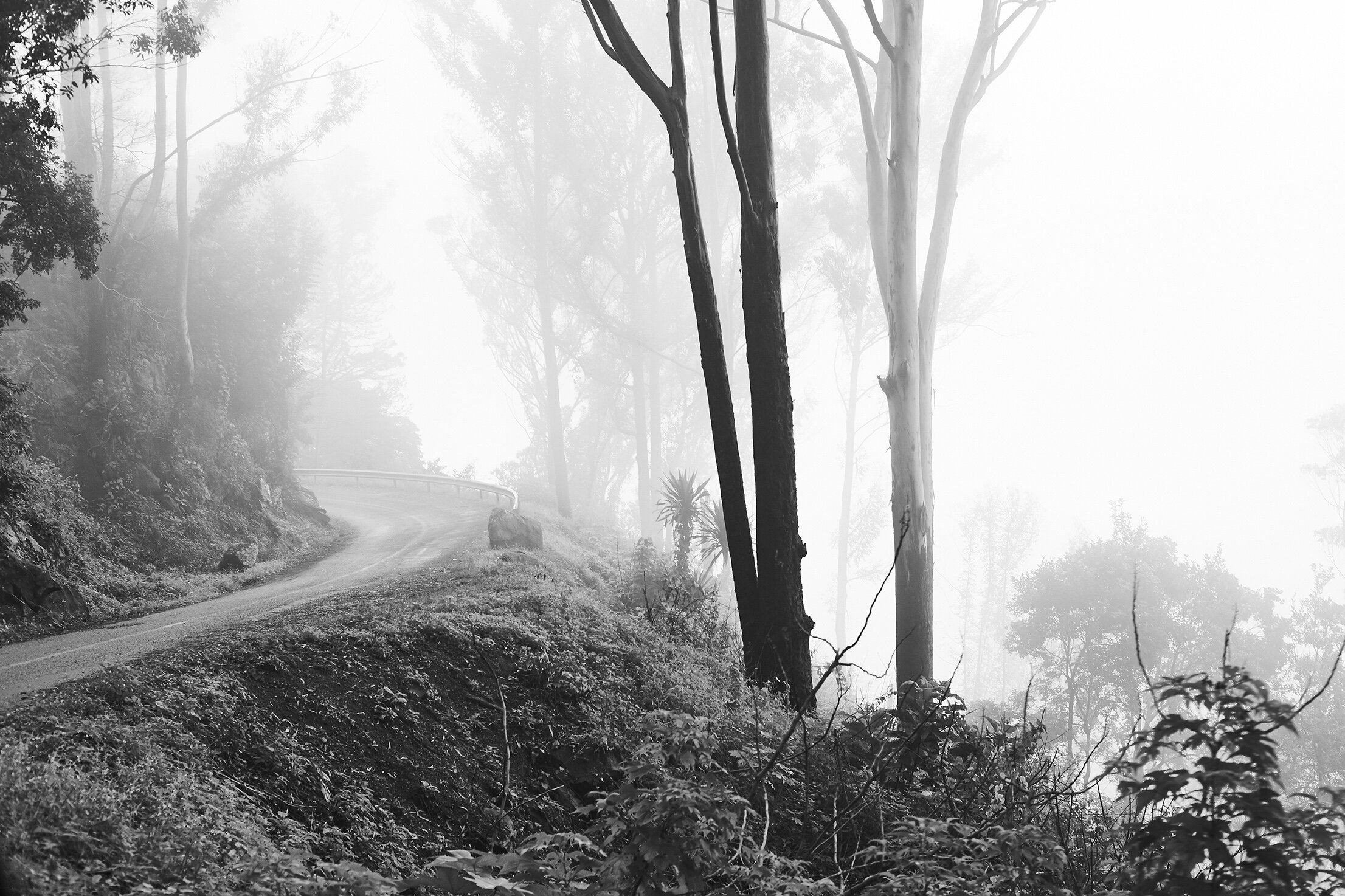The Loggers
Every day, illegal loggers hike around 15km per day to extract wood from Malawi's Zomba Plateau.
Jackson is one of the subsistence loggers who rely on the plateau forest for income.
The steep haul up and down the mountain costs them a day, many of them walk it barefoot, even in extreme weather. This backbreaking work is not only in most cases illegal, but for many of the woodcutters, a necessary way of earning an income. Malawi is one the poorest countries in Africa and since most Malawians live outside city centres without basic services from the government, they use wood as integral fuel in their daily lives. Even when electricity is available, it is rationed by the government. In the wake of a huge environmental crisis, the demand for wood and charcoal remains high and the woodcutters take on the work with few other ways to earn a living.
Luda with her daily harvest.
Jackson
The plateau is a tourist attraction and is famed for its lush hiking routes.
Illegal logging is a pressing and controversial issue as Malawi has one of the highest rates of deforestation in the world. While these individual loggers operate relatively small scale and out of great economic need, huge commercial syndicates orchestrate massive damage to Zomba and other forest reserves such as Chikangawa and Dzalanyama. It is estimated that Malawi's natural forests are being depleted between 1,8 – 2.6 % annually, roughly 74 800 hectares per year. Earlier this year, the Malawian government even deployed soldiers from the Malawi Defence Force to patrol certain vulnerable areas. In May, 35 perpetrators in the biggest recorded illegal logging case were sentenced to up to 18 months behind bars. Over $ 500, 000 worth of vehicles and equipment was used by the syndicate in their massive extraction operation.
When the loggers reach the end of the backbreaking haul, they sometimes have their wood confiscated by police. If not, and they manage to sell the wood, they can earn as little as an average of 3500 kwacha the equivalent of R 84 or 4,76 USD.
Deforestation in Malawi is a major contributor to soil erosion, river siltation, droughts, flash floods and threats to biodiversity. The environmental concerns are overshadowed by economic realities on the ground level for these small scale loggers who traverse the plateau daily.
J Mathemba stands for a portrait on the Zomba Plateau, Malawi.







